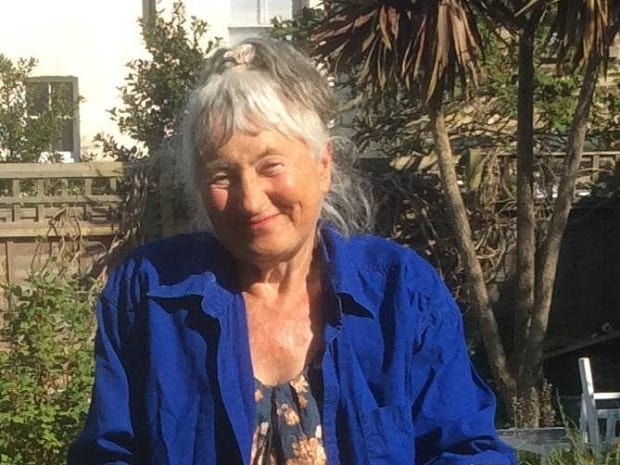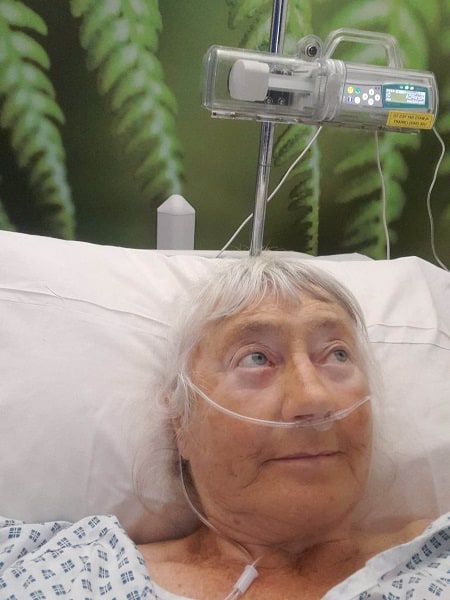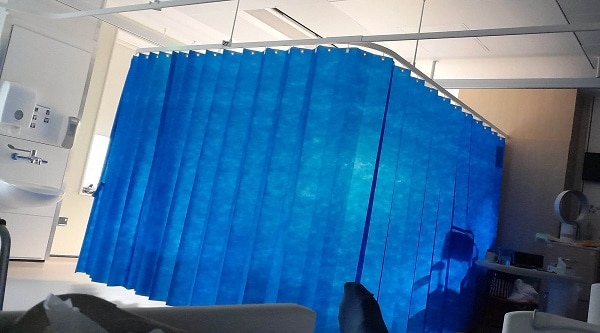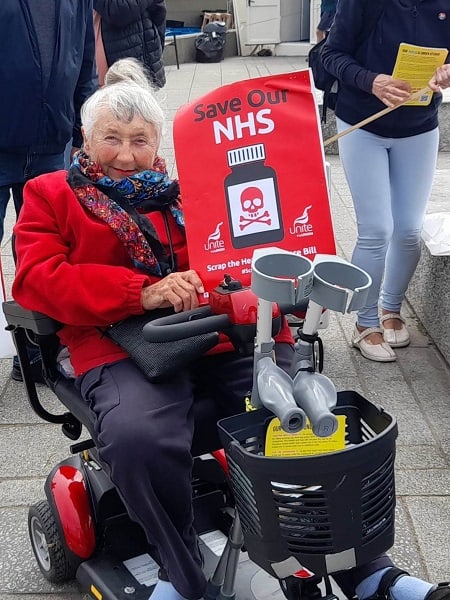
I’ve been chopped up and put back together again – caringly and medically. And in hospital. But your body doesn’t really distinguish between major hip surgery for your long term benefit and having your leg chewed off by a polar bear. Your immune system is screaming YOU IDIOT! and planning revenge for getting yourself into danger. How do you survive?
Fortunately modern medicine has ways of dealing with this. Here’s some snapshots of what happened to me.
Coming round and realising you’ve survived but you’re plugged into a load of tubes – oxygen, saline, morphine on demand! I had one button for calling the nurse and one for administering a dose of morphine. Easily mixed up when you’re still a bit high from anaesthetic….and a catheter so no rushing to the loo or waiting in misery for a bed pan.
I needed help just sitting up, washing, drinking – everything.
But it’s not the paraphernalia, it’s the people you remember when you’re finally out.

Fellow patients are a big comfort – instant friendship as you encourage each other to walk, distract each other from pain and share misery about the Lady in the Corner (LIC) who kept her curtains drawn, her telly loud and her temper fierceShe hated the food and most of the staff, especially when they tried to open her curtains. I like blue but a week of staring at curtains instead of the window she was hogging, was a week too long. I’m sure she had her own problems but the poor nurses had to deal with it all.

The nurses will stay in my mind for ever, keeping everything functioning and staying optimistic when the LIC was screeching at them or clearing up some foul mess as yet another hospital dinner hit my sick bowl.
Nurses like beautiful staff nurse Amina, who sympathised with my nonstop nausea because she’d just come back to work after months of morning sickness. We also had the same west Midlands accent but she’d come to work in a London teaching hospital because of the wide experience to be gained. I only saw nurses’ eyes as they all wore masks but she’d spent months of nauseous boredom practising eyeshadow blending so the result was gorgeous. She was fresh back and keen to get to work again. But as the days went by, the eye makeup disappeared, I caught sight of her holding her back in pain, and colleagues urged her to go and lie down. Five months pregnant and putting in a twelve hour shift looked like a real challenge. She didn’t want to let down her colleagues as they badly needed experienced staff, but I could see it was hard for her.
And Melissa, student nurse but in her thirties. She came to nursing through an Access course in her local college so she brought maturity and commitment to the job. It takes dedication to come to a low paid job, accompanied by huge amounts of studying and work in a hospital the other side of London, paying London fares and worrying if her ten year old daughter got to school safely. Her husband, a trained engineer, had taken a job at Aldi because it was near to home and they got discounts on food. Money was a serious worry. She was helping me wash when Boris Johnson announced that people on housing benefits would be able to get mortgages. She laughed in disgust that our politicians could be so out of touch.
And Yasmin, whose family lived near Everest, tiny, incredibly strong and always offering to make tea with smiling eyes. She did nights and cheered me up at 8pm, and was still smiling at 8am when breakfast came round – and the LIC had once again refused to eat that early.
Paulo was a Portuguese man who came over from the men’s ward to help wash patients when a nurse couldn’t get in because her car broke down. The LIC went ballistic and wouldn’t let him through her curtains. I gave myself a talking to about modesty etc and let him wash my hair – after five days of sweating in bed. He was brilliant and really careful to keep water off the huge dressing on my leg. And I smelt good at last. Obrigado! And thanks EU for luring him here ten years ago. Hope he stays.

I could go on and on but my main thought through all this traumatic experience was why do these fantastic people have to worry about money? No wonder they need to strike. Anyone concerned about the effect of striking health workers on the NHS needs to think there are already over 140,000 vacancies in the health service. Give them good pay and good work conditions, give them grants to study, and motivate them to stay here when they qualify. Be endlessly grateful. I am! Seems simple to a recent patient.
(Names have been changed)
Christine Tongue is a member of disability campaign group Access Thanet

